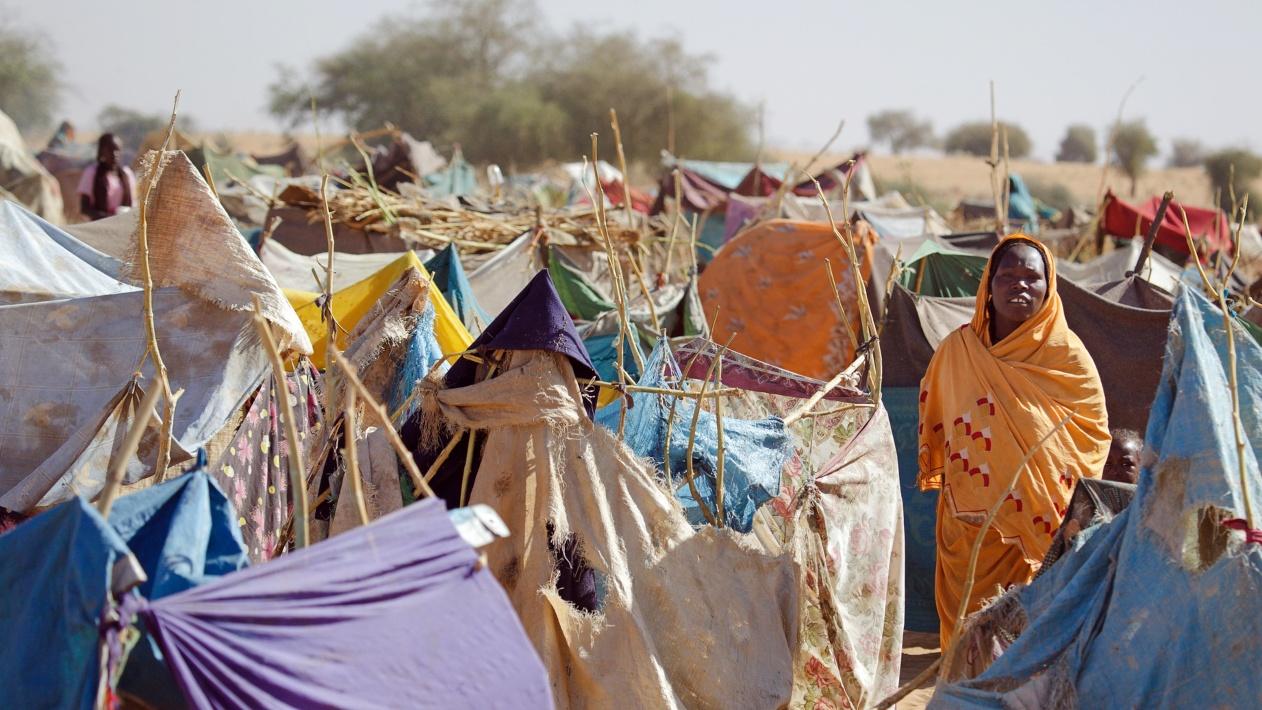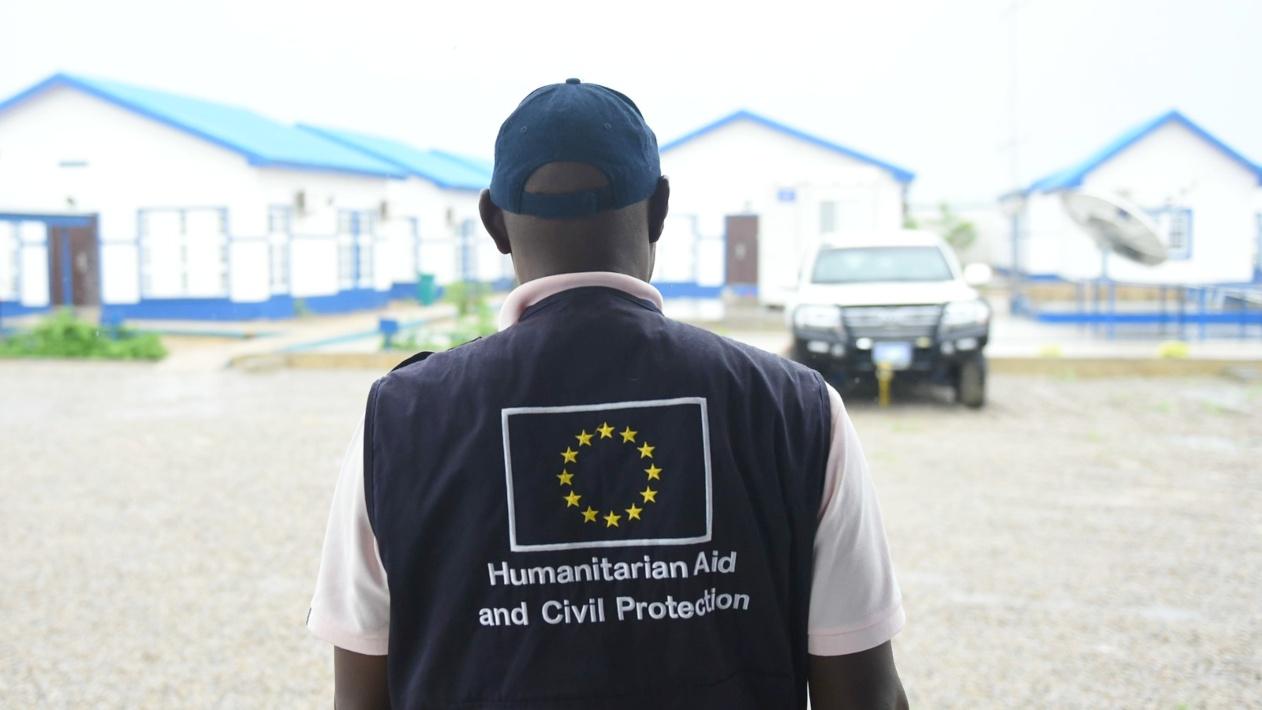The success of many refugee-oriented humanitarian-development organisations can be inconclusive, with some programmes shown to further marginalise the very people they purport to help. Less well documented is how refugees resist programmatic failure. Based on research in Palabek Refugee Settlement in Uganda, LSE’s Dr Ryan Joseph O’Byrne explores how refugees’ resistance to humanitarian-development failure should be understood as positive, if unintended, examples of how marginalised populations try to adapt, survive and cope.
Based on research for the project Deconstructing Notions of Resilience at the Firoz Lalji Institute for Africa, this blog draws on a new paper in the journal Civil Wars.
Corruption, fraud and the Ugandan refugee industry
Hundreds of thousands of civilians were killed in the recent conflict in South Sudan (2013-18), with one in four displaced in some way. By the end of 2016, South Sudan was the source of over 2 million refugees, at that time not only the largest crisis in Africa but the third largest in the world. Uganda was – and remains – the single largest host of South Sudanese refugees, receiving over 800,000 displaced South Sudanese by mid-2018.
Underpinned by the 2006 Refugees Act and the 2010 Refugee Regulations, Uganda’s refugee legislation has garnered significant attention for its supposedly refugee-friendly nature, with all South Sudanese in Uganda having prima facie refugee status and an entitlement to the same basic services as citizens, as well as some freedom of movement and rights to employment and business ownership. However, the realities of Uganda’s settlements are not as positive as official narratives suggest, and these rights are often unavailable in practice. Furthermore, in 2017 and 2018 the glowing (and rather falsely one-sided) Ugandan refugee narrative was rocked by a corruption scandal of massive proportions.
The 2018 refugee scandal in Uganda erupted after a large proportion of the £300 million pledged at the Uganda Solidarity Summit on refugees in June 2017 went missing, corruption that had probably been occurring from at least 2016. Some of the many other allegations included fraud regarding food assistance and refugee numbers, as well as refugees being required to pay bribes in order to get registered (which I have written about before).
During my 12 months of ethnographic fieldwork into refugee “resilience” from 2017-18, residents in Palabek Refugee Settlement (PRS) gave me multiple eyewitness and anecdotal accounts of corruption. More incriminating was the evidence shown in official documents created and authorised at an organisational level by the World Food Programme and the Office of the Prime Minister, which, in detailing exactly how much food was given to how many people in which areas of the settlement, provided a means to interrogate discrepancies between food distribution data and alleged refugee numbers. These documents showed that hundreds of households numbering some thousands of people went without food for several months in this one settlement alone. These statistics are backed up with a wealth of ethnographic evidence making the same basic point: many refugees’ food was simply not delivered. Who actually received that aid is an open question.
Resistant resilience
My recent paper describes South Sudanese refugees’ practises of resistance to corruption and other bureaucratic failure. By focusing on how refugees in PRS reacted to food aid delivery fraud in late 2017 and early 2018, especially, I demonstrate how corruption within Uganda’s refugee programming impacted refugees’ lives and undermined their survival, coping and resilience.
At the same time, refugees showed ground-up resistance to humanitarian shortcomings. Because these are acts of resistance that simultaneously demonstrate refugees’ resilience, I argue they are important manifestations of what my paper terms “resistant resilience”: how vulnerable peoples, through their very attempts at survival, must often resist exploitation or oppression in ways demonstrating the underlying resilience of their lives more generally.
Refugee resistance
My paper shows that, from late 2017 to June 2018, thousands of refugees in PRS went without food because of bureaucratic failures or humanitarian corruption. Indeed, the scale of abuse taking place might have led to riots if not for the intervention of refugee leaders: in February 2018, the community held a meeting to discuss how to respond to the missing food issue. The most popular proposal at this meeting called for mass demonstrations, including a march through the settlement, and culminating with a protest at reception.
However, refugee leadership decided that stopping a mass demonstration was critical: they felt that, because such an action would be seen as ‘a riot’, violent retaliation from Ugandan police would surely follow. This needed to be prevented because, not only would it cause injuries among the refugee population but would also be used to invalidate the refugees’ larger concerns about missing food aid.
Rather than backing mass demonstration, the settlement’s leadership therefore proposed an agenda of civil disengagement from non-essential services until distribution was reconstituted. This effectively meant boycotting the plethora of workshops, meetings and capacity-building exercises that formed most NGOs’ staple practices. Such an action allowed the community to communicate with authorities in a way that did not require direct dialogue yet still allowed widespread, non-threatening dissent.
But such large-scale, organised action was not the only way corruption was resisted by the refugees in Palabek at this time. Most responses were far more prosaic and immediate: while some individuals sold relief items or engaged in minimally compensated day labour, others returned to South Sudan. Border crossers generally travelled for three separate yet connected purposes: most wanted to access agricultural or trade opportunities; others sought to access multiple registrations (kubwariga); the most desperate of all engaged in a form of “survival repatriation”.
The politics and practice of resistant resilience
Not surprisingly, many PRS residents felt cheated and abandoned during early 2018: they were facing an ongoing problem of basic existence, brought on by individual and institutional corruption within the same organisations tasked with their very protection, and without any obvious end. Nonetheless, the basic fact remained that life went on, and so people must continue to survive. Such survival often depended upon a diverse range of mechanisms to cope with the positive and negative dimensions of everyday life, the most obvious being those ways in which people tried to enhance their lives despite structural and systemic failure: undertaking simple activities, such as additional farming or trading activities, designed to increase their income or food supplies and improve the lives and livelihoods of themselves and their families.
However, resilience and survival are not the simple equivalents humanitarian actors often consider them. For “resilience” to have any meaning, the term cannot simply be reduced to mere survival, just as continuing to survive cannot be assumed to be a demonstration of resilience. Instead, agency is central, both to the processes underlying being resilient as well as to those ensuring survival. Agency is also fundamental to marginalised people’s practices of resistance, and many acts of everyday resistance often originate in such basic survival needs, like those underpinning the tactics of resilience undertaken by refugees in Palabek my paper discusses.
I therefore suggest that the responses of refugee in PRS show the importance of agency and resistance in their personal and communal resilience. I further argue that many refugees’ strategies of survival depended on individual and communal abilities to base their “tactics of resilience” in appropriate acts of resistance. Indeed, my paper shows how everyday life in PRS often required active resistance, simply because of the ambiguities and complexities of the often exploitative relationships within which refugees live.
Read the paper “Resistant Resilience: Agency and Resilience Among Refugees Resisting Humanitarian Corruption in Uganda”, part of a forthcoming special issue on vernacular understandings of resilience in Uganda for the journal Civil Wars. This research was based on fieldwork undertaken for the Deconstructing Notions of Resilience project run at LSE over 2018-20.
Photo: Imvepi Refugee Camp. Credity: UNMISS/ Licensed under CC BY-NC-ND 2.0.





